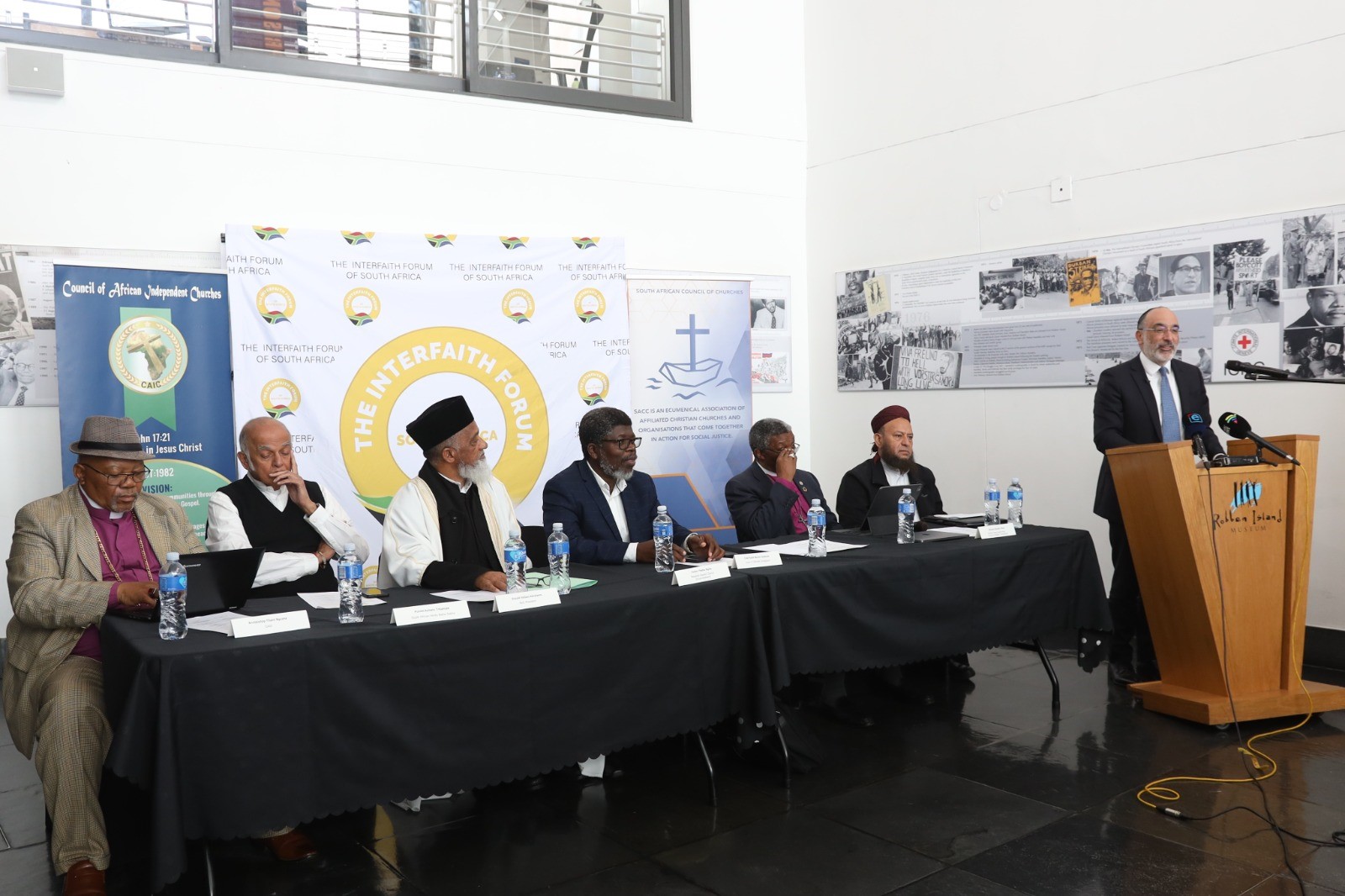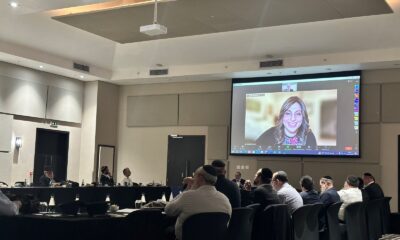
News

Religious leaders to confront ‘SA in crisis’
In an historic moment, Chief Rabbi Dr Warren Goldstein stood alongside other religious leaders at the Nelson Mandela Gateway to Robben Island on 5 September to announce a new national effort to address the state of South Africa as a nation in crisis. The gathering was also one of hope, as they joined hands to offer solutions, guidance, and a moral compass to a country that seems to have lost its way.
The religious leaders, part of the Interfaith Forum of South Africa (TIFSA), expressed profound disappointment at the slow pace of bringing to book those identified by the Zondo Commission report, and they called on the government to expedite delivery of its recommendations.
In addition, ahead of the 2024 national elections, they committed to embarking on a nationwide campaign of voter education. Goldstein will lead this portfolio for TIFSA.
The event was held at the Robben Island gateway to mark the sacrifices of those who were imprisoned there, and who gave their lives for the vote. Though it was supposed to be held on the island, this was prevented by bad weather.
The leaders also announced that in October 2023, TIFSA would host a solutions-driven national convention which would bring together representatives from all walks of life to brainstorm as a nation and look for solutions.
Goldstein said that TIFSA in its current form began during the COVID-19 pandemic to help communities as they faced that hurdle. Now, he says, religious leaders are equally concerned about the country’s social and moral crisis.
“We reject this trajectory that we are on, and we call for us to move in a different direction that realises the full potential of our nation,” says Goldstein. “As religious leaders, we affirm the responsibility we have to uphold the moral fabric of who we are as a people. We came to Robben Island, a place that represents pain, sacrifice, the triumph of the human spirit, and the survival of hope.”
The religious leaders pulled no punches in describing why they feel South Africa is at a tipping point, telling the media it was because of poverty, inequality, social ills, violence against women and children, the collapse of stable family life, crime, racial and gender discrimination, endemic corruption, and high unemployment.
They called on every South African to “stand up as a warrior against corruption and the peril faced by whistleblowers. The solutions to our challenges lie with the citizens of this country. South Africa is our nation, our responsibility. As communities, we have what it takes within us to work together to reconfigure our trajectory. Let’s come together to craft the pathway.”
The day started with informal discussions between the religious leaders and then a presentation to the media, where the leaders spoke individually. In his speech, Goldstein said, “The beauty of South Africa and this interfaith forum is that we can be an example to religious communities throughout the world. Here, we spent hours together in deliberation for the good of our country, recognising the common vision that we share, because there’s so much work to be done.”
“The fact that this meeting is taking place at the gateway to Robben Island is important because it represents for South Africans hope in a better tomorrow,” he said. “In the days of apartheid, the country seemed so dark, yet we were able, with G-d’s blessings, to build a great nation filled with so much hope and a beacon of light to the entire world.
“If we were able to overcome those problems, we can certainly overcome the problems that we face today. The other thing that Robben Island stands for is idealism. If we’re to rekindle the great South African dream, we need to do that through the power of idealism, with leaders who do it for the sake of the people, for the sake of the ideals, and for the sake of society.”
For the Zondo Commission report “to sit and gather dust is something unconscionable”, he said. “We call for urgent action from the government to ensure that all of the people who have been implicated clearly cannot serve in public office.”
Goldstein also wants people to know that given the country’s history, “It’s immoral not to vote in an election. It’s a moral duty to exercise that vote with conscience and with values. We undertake to initiate a nationwide voter education campaign to share with citizens the moral importance of voting and how to exercise that vote with integrity.”
South African Jewry has an important role to play in all of this, Goldstein says. “Voter education, voter empowerment, active citizenry, getting involved, and appreciating the moral responsibility to vote with conscience, is going to be particularly important,” he told the SA Jewish Report after the event.
Although the community sometimes feels isolated, these discussions showed him how it’s part of the wider fabric of South African society and that we all have the same concerns. “We experience these problems like all South Africans do, and all of our concerns are shared by the other faith communities,” Goldstein says.
He emphasised that although the tone of the event was serious, “It wasn’t one of negativity, doom, and gloom. It was one of strength, hope in overcoming these problems, ownership, and defiance. As citizens, we’re saying, ‘We’re going to rally together. We’re going to hold government accountable. We’re going to exercise the right to vote with real confidence. We’re going to debate, and find solutions.’
“The tone was to confront problems, but to do so from the point of view that we, the people, can achieve great things when we work together and when we have integrity. It’s a privilege for me to represent the Jewish community at the meetings beforehand, at the press conference, and in this initiative as it’s rolled out in the months ahead.”










